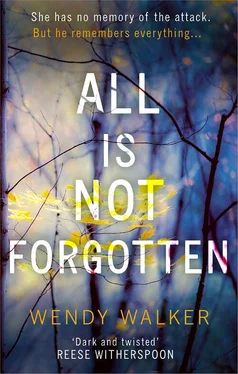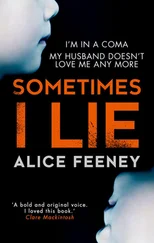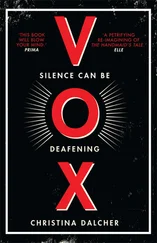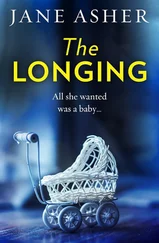She remembered a strong odor, though she couldn’t place it. She remembered a song, but it was possible the song had played more than once. She remembered the events that drove her out the back door, across the lawn, and into the woods. She did not recall the sprinklers, and that became part of the reconstruction of the story. The sprinklers came on at nine and off at ten, having been set to a timer. The two lovers who found her had arrived in the back to grass that was wet but air that was dry. The rape had been in between.
Doug had been with another girl, a junior who found him necessary to her plan to make some senior boy jealous. It is hardly worth the effort to elucidate the vapid motivations of this particular girl. What mattered to Jenny was that a week’s worth of fantasies, around which she had wrapped much of her disposition, had been shattered in a second. Predictably, she began to drown her sorrows in alcohol. Her best friend, Violet, recalled that she had started with shots of vodka. Within an hour, she was vomiting in the bathroom. This had led to the amusement of some others, and then to her further humiliation. It might have been a script from one of those “mean girl” shows that seem to be all the rage now. Except for the part that followed. The part where she ran into the woods to be alone, to cry.
I was angry. I won’t apologize for that. I wanted justice for what had happened. But without a memory, without any forensic evidence beyond the wool fibers under her nails because this monster had taken precautions, justice was no longer on the table. Fairview is a small town. Yes, I know I keep saying this. But you must understand that this is the kind of town that would not attract a stranger to perpetrate a crime. Heads turn when someone unfamiliar walks the two small strips of our downtown. Not in a bad way, mind you, but in a curious way. Was it someone’s relative? Someone moving here? We have visitors for special events, sports tournaments, fairs, things like that. People will come from other towns and we welcome them. We are generally friendly people, trusting people. But on an ordinary weekend, outsiders are noticed.
Where I am going with all this is the following obvious conclusion: Had she not been given the treatment, had her memory been intact, she might have placed him. The fibers under her nails indicated she had grabbed at the mask. Maybe she pulled it off, or up just enough to see a face. Maybe she heard a voice. Or was he perfectly quiet for an hour of raping? It seems unlikely, doesn’t it? She would know how tall he was, thin or fat. Maybe his hands were old or maybe they were young. Maybe he wore a ring, a gold band or a team emblem. Did he wear sneakers or loafers or work boots? Were they worn or stained by oil or paint or maybe they were perfectly shined? Would she know him if she stood near him at the ice cream shop? Or at the coffeehouse? Or in the lunch line at school? Would she simply feel him in her gut? An hour is a long time to be with another body.
Maybe it was cruel to want this thing for Jenny Kramer. Maybe I was cruel to pursue the wanting. It would, as you will see, lead to unexpected consequences. But the injustice of it all, the anger it provoked in me, and the ability to understand her suffering—all of it led me to a single-minded pursuit. And that was to give back to Jenny Kramer this most horrific nightmare.
Jenny’s parentswere called just after ten thirty. They had been attending a dinner party with two couples from their country club, though the dinner was at the home of one of the couples and not at the club itself. Charlotte Kramer, Jenny’s mother, had complained about this in the car on the way through town earlier that evening, how they should be dining at the club to use up their minimum and, according to her husband, Tom, because Charlotte liked the social scene there. Cocktails were always served in the lounge, so regardless of the company you had planned to keep during the dinner, there was a chance to mingle with other club members.
Tom disliked the club other than to play golf on Sunday with his usual foursome: a friend from college and two dads he’d met through Jenny’s track team. Charlotte, on the other hand, was highly social and was aspiring to join the pool committee for the upcoming season. Any Saturday night not spent at the club felt like a lost opportunity to her. It was one of the many sources of marital discord between them, and their short car ride had ended with silence and mutual irritation at the making of the usual comments.
They both remembered this later, and how petty it had seemed after the brutal rape of their daughter.
One of the nice things about a small town is that people bend the rules when it seems appropriate. The fear of being reprimanded, or even sued, does not loom quite so precariously as it does in a larger community. So when Detective Parsons called the Kramers, he did not tell them what had happened, only that Jenny had been drinking at a party and was taken to the hospital. They had been immediately reassured that her life was not at all in danger. Tom was thankful for this, for being spared the few minutes of agony as they drove from the dinner to the hospital. Every minute after learning of the rape had been just that for Tom—unrelenting agony.
Charlotte had not been quite so appreciative, because the partial truth caused her to be enraged at her daughter’s carelessness. The whole town would surely know, and how would that reflect on their family? On the way to the hospital, they had discussed punishments, weighing the impact of grounding or having her phone taken away. Of course, when they did learn the truth, it was guilt that found its way into Charlotte, and for that she was resentful of the misinformation. It is understandable, having been presented with a reason to be angry at your child only to then find out she had been so viciously assaulted. Still, I identified more with Tom on this. Perhaps it is because I am a father and not a mother.
The hospital lobby was empty when they arrived. There had been some attention given over the past several years to fund-raising and upgrading, and the results, while more cosmetic than substantive to many minds, were noticeable. Wood paneling, new carpet. The lighting was soft and there was classical music playing from the wireless speakers that hung discreetly in the corners. Charlotte “stormed” to the front desk (Tom’s word). Tom caught up and stood beside her. He closed his eyes and let the music calm his blood. He was concerned that Charlotte would be too harsh, at least for what this moment called for, and he wanted to “balance her out.” Jenny needed to sleep, to know her parents still loved her and that everything would be all right. The consequences could wait until they were all sober and clearheaded.
The Kramers knew their roles within the family. It was Charlotte’s task to be the disciplinarian with their daughter. With their boy, Lucas, the roles were often reversed, likely because of his age (ten) and his gender. Tom described this arrangement as though describing a blue sky—it was as it should be, as it is in every family. And he was right in theory. There are always roles to be played, shifting alliances, good cops and bad cops. With the Kramers, though, the natural ebbs and flows seemed to have given way to Charlotte’s needs, with the others taking parts she did not monopolize. In other words, the normalcy Tom attempted to ascribe to their family would prove to be quite abnormal, and untenable.
The nurse smiled at them sympathetically as she released the lock on the door to the treatment rooms. They didn’t know her, but that was true of most of the support staff at the hospital. Lower-salaried professionals rarely lived in Fairview, coming in from the neighboring city of Cranston. Tom remembered her smile. It was the first hint that this was a more serious incident than what they had been led to believe. People underestimate the hidden messages in a fleeting facial expression. But think about the type of smile you would give a friend whose teenager got caught drinking. It would express a comical type of empathy. It would say, Oh man, teenagers are tough. Remember what we were like? And now think about the smile you would give if that teenager had been assaulted. That smile would surely say, Oh my God! I’m so sorry! That poor girl! It’s in the eyes, in the shrug of the shoulders, and in the shape of the mouth. When this nurse smiled, Tom’s thoughts shifted from managing his wife to seeing his daughter.
Читать дальше












